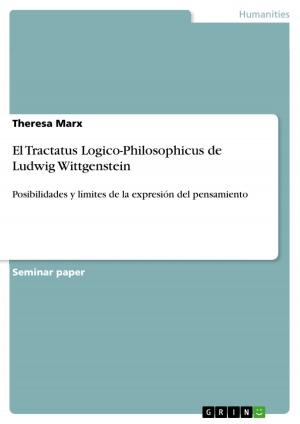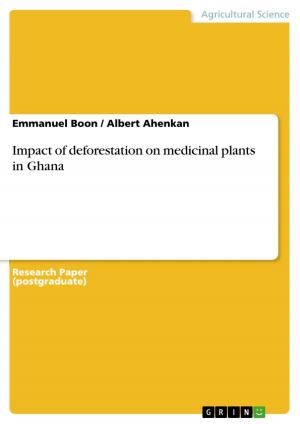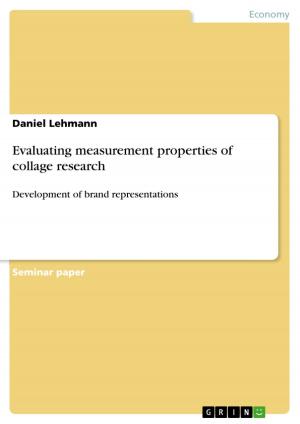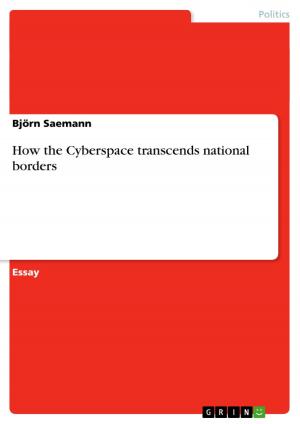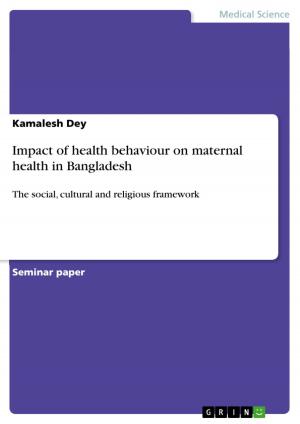Analysis of the Chilean tourism market - products and opportunities for the destination Pucón and the IXth region
products and opportunities for the destination Pucón and the IXth region
Business & Finance, Industries & Professions, Hospitality, Tourism & Travel| Author: | Beate Pehlchen | ISBN: | 9783638400169 |
| Publisher: | GRIN Publishing | Publication: | July 19, 2005 |
| Imprint: | GRIN Publishing | Language: | English |
| Author: | Beate Pehlchen |
| ISBN: | 9783638400169 |
| Publisher: | GRIN Publishing |
| Publication: | July 19, 2005 |
| Imprint: | GRIN Publishing |
| Language: | English |
Bachelor Thesis from the year 2005 in the subject Tourism, grade: 1,5, Stralsund University of Applied Sciences (University of Applied Sciences), course: Leisure and Tourism Management, 80 entries in the bibliography, language: English, abstract: On the economic front, tourism has the capacity to create jobs: jobs for the poor, jobs in the indigenous communities, unskilled as well as highly qualified jobs, jobs in seaside resorts as well as in remote rural areas and in ecotourism activities. Tourism is a much more diverse industry than many others and can build upon a wide resource base. Diversity increases the scope for wide participation. Furthermore, most export industries depend on financial, productive and human capital. Indeed, tourism depends on these but also on natural capital, such as wildlife, scenery and beaches, and culture, vital assets of many developing countries in Latin America and the Caribbean. For these reasons combined, tourism should be considered as one of the important economic development opportunities available to developing countries in the region. The United Nations declared the year 2002 as INTERNATIONAL YEAR OF ECOTOURISM. The development of ecotourism often involves precious and fragile natural resources and must be done with great sensitivity. Natural habitats have been diminishing at alarming rates and equally alarming reports are regularly published on diminishing water resources, deforestation, increases in pollution, the destruction of corral reefs and many more. This is why ecotourism should also be sensitive to local communities, their land rights, traditions, cultures and ways of life. Ecotourism in remote areas cannot be developed without the consent and active involvement of local peoples, who should become partners in the process. For many countries like Chile, particularly in the developing world, tourism is one of the few meaningful sources of economic development and job creation. What would be the situation of countries like Cuba, Dominican Republic, Seychelles, Maldives, Vietnam and many others without tourism? Tourism can therefore play an important role in improving living standards and raising people above the poverty threshold. The main components of this thesis are: The tourism development situation in Chile under the consideration of the native population. What are the strengths and weaknesses of the destination Pucón and the unique selling proposition? Actual offers and analysis of an agency as economy example. Visitor structure and satisfaction with the products. New opportunities for the destination and the IXth region which are part of the sustainable tourism development - cultural and ecotourism.
Bachelor Thesis from the year 2005 in the subject Tourism, grade: 1,5, Stralsund University of Applied Sciences (University of Applied Sciences), course: Leisure and Tourism Management, 80 entries in the bibliography, language: English, abstract: On the economic front, tourism has the capacity to create jobs: jobs for the poor, jobs in the indigenous communities, unskilled as well as highly qualified jobs, jobs in seaside resorts as well as in remote rural areas and in ecotourism activities. Tourism is a much more diverse industry than many others and can build upon a wide resource base. Diversity increases the scope for wide participation. Furthermore, most export industries depend on financial, productive and human capital. Indeed, tourism depends on these but also on natural capital, such as wildlife, scenery and beaches, and culture, vital assets of many developing countries in Latin America and the Caribbean. For these reasons combined, tourism should be considered as one of the important economic development opportunities available to developing countries in the region. The United Nations declared the year 2002 as INTERNATIONAL YEAR OF ECOTOURISM. The development of ecotourism often involves precious and fragile natural resources and must be done with great sensitivity. Natural habitats have been diminishing at alarming rates and equally alarming reports are regularly published on diminishing water resources, deforestation, increases in pollution, the destruction of corral reefs and many more. This is why ecotourism should also be sensitive to local communities, their land rights, traditions, cultures and ways of life. Ecotourism in remote areas cannot be developed without the consent and active involvement of local peoples, who should become partners in the process. For many countries like Chile, particularly in the developing world, tourism is one of the few meaningful sources of economic development and job creation. What would be the situation of countries like Cuba, Dominican Republic, Seychelles, Maldives, Vietnam and many others without tourism? Tourism can therefore play an important role in improving living standards and raising people above the poverty threshold. The main components of this thesis are: The tourism development situation in Chile under the consideration of the native population. What are the strengths and weaknesses of the destination Pucón and the unique selling proposition? Actual offers and analysis of an agency as economy example. Visitor structure and satisfaction with the products. New opportunities for the destination and the IXth region which are part of the sustainable tourism development - cultural and ecotourism.




